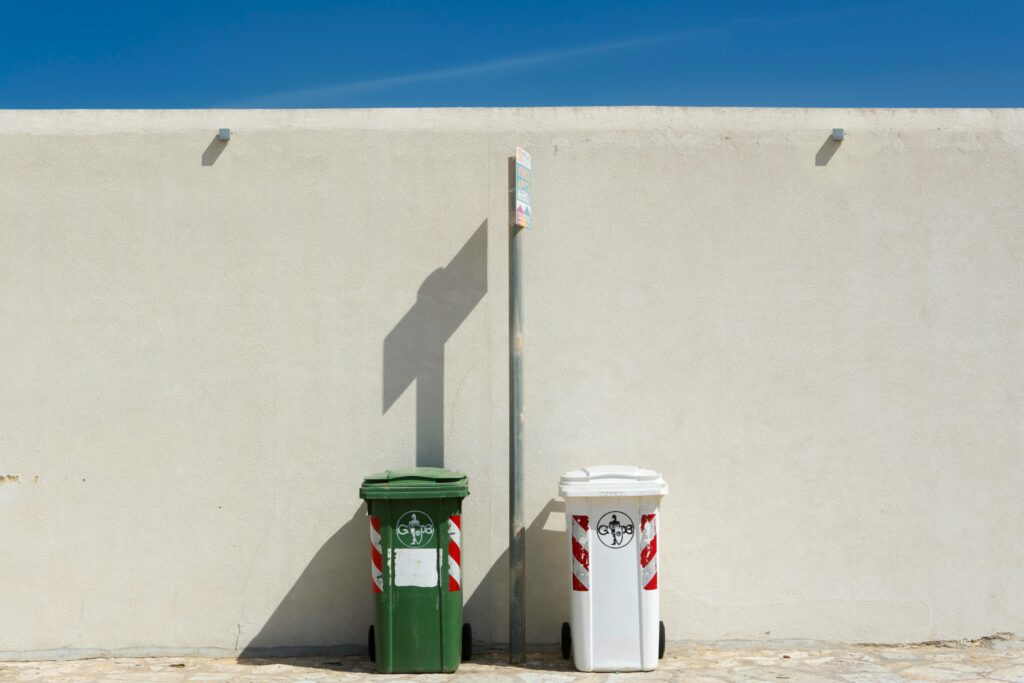The Future of Municipal Solid Waste Management: Trends, Innovations & Smart Solutions
Imagine a place where the waste we discard today becomes the foundation for the innovations of tomorrow. In a world where waste generation is projected to grow by 70% by 2050, the question isn’t just how we manage waste, it’s how well.
Municipal solid waste management (MSWM) is no longer about collecting and dumping garbage; it’s about reimagining the entire lifecycle of waste. From cutting-edge technologies to sustainability-driven strategies, the future of AI in waste management is being reshaped by innovation. And at the heart of this transformation lies a pressing need: smarter, more efficient solutions that align with global sustainability goals.
Let’s sink our teeth into the trends and innovations defining this space: and how Maan Enviro is playing a pivotal role in shaping the future.

Global Waste Trends in Solid Waste Management
The numbers don’t lie. According to the World Bank, the world generates over 2 billion tons of municipal solid waste annually, with at least 33% of it not managed in an environmentally safe manner. Urbanization, population growth, and changing consumption patterns are driving this surge, creating a global waste crisis. But amidst the challenges, there’s hope. Governments, industries, Smart Waste Technologies and innovators are stepping up to tackle the issue head-on.
One of the most significant trends is the shift toward circular economies. Instead of the traditional “take-make-dispose” model, the focus is now on reducing, reusing, and recycling waste. Countries like Sweden and Germany have set the bar high, recycling over 50% of their municipal waste. Meanwhile, developing nations are adopting technological innovations and models to address waste management challenges, often leveraging technology to bridge gaps in infrastructure.
Technological Innovations Transforming the Industry
Technology is the game-changer in modern waste management. From advanced sorting systems to waste-to-energy for sustainable waste solutions, the industry is undergoing a tech-driven revolution. Here are a few standout innovations:
Trommel Screens:
These cylindrical screening machines are revolutionizing waste sorting by separating materials based on size. They’re particularly effective in handling mixed waste streams, ensuring that recyclables are efficiently recovered.
RDF (Refuse-Derived Fuel) Processing:
RDF is turning non-recyclable waste into a valuable resource. By converting waste into fuel for industries, RDF processing not only reduces landfill dependency but also contributes to energy recovery.
Smart Waste Technologies:
Internet of Things (IOT)-enabled smart bins are making waste collection more efficient. These Smart Waste Technologies bins can monitor fill levels in real-time, optimizing collection routes and reducing operational costs.
The Role of Automation and AI in Waste Management
Artificial Intelligence (AI) and automation are at the forefront of modernizing waste management. Automated sorting systems equipped with robotics and AI can efficiently separate recyclables from waste streams, significantly improving recycling rates
AI-driven innovations also enable better monitoring of environmental conditions and the development of sustainable solutions to mitigate climate change effects.
Sustainability Goals and the Need for Sustainable Waste Solutions
As urbanization intensifies, the imperative for smart waste technologies and sustainable waste solutions becomes more critical. Sustainable waste management not only addresses environmental concerns but also aligns with broader sustainability goals, such as those outlined in the United Nations’ Sustainable Development Goals. Implementing smart technologies in waste management can lead to more efficient resource use, reduced greenhouse gas emissions, and the promotion of a circular economy.
Maan Enviro’s Contributions to the Future of Municipal Solid Waste Management
At the nexus of these advancements stands Maan Enviro, a pioneer in integrating cutting-edge technologies with sustainable practices. We leverage technology and develop solutions that not only enhance the efficiency of waste processing but also contribute to environmental conservation. Our commitment to transforming waste management aligns with global Waste trends and positions us as leaders in the journey towards a sustainable future.
The future of municipal solid waste management is being reshaped by technological innovations and a steadfast commitment to sustainability.
With the global waste management market projected to grow from USD 120.05 billion in 2025 to USD 151.54 billion by 2030, the integration of smart solutions and sustainable practices is not just an option but a necessity. Embracing these changes today will pave the way for a cleaner, more sustainable tomorrow.
At Maan Enviro, we believe in partnering with communities, businesses, and governments to build a Municipal Solid waste management ecosystem that is both sustainable and efficient.
Let’s build a cleaner, greener future together. Get in touch with us today to explore how Maan Enviro can transform your waste management strategy with maintaining Global Waste Trends !
